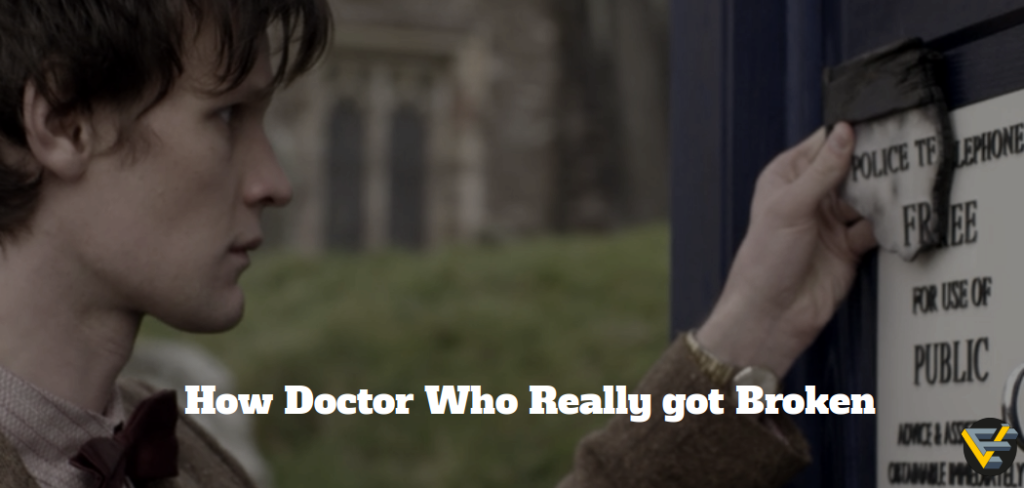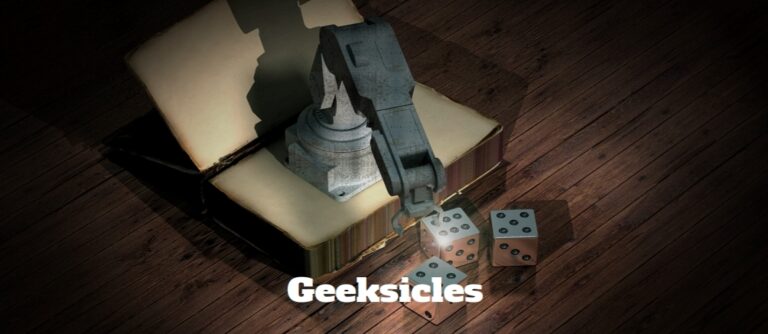How Doctor Who Really got Broken
What does it really take to destroy the past?
Lord Jack of Gallifrey and Sir Seth the Godwynnian
There can’t be many people left with an ounce of discernment who don’t think that modern incarnations of Doctor Who have got a bit bad. It seems that the only people left watching are the independent critics who want to rag on it on YouTube, the nostalgic fans who can’t quite believe this is actually really happening, and drunks with broken television remotes.
The show has sunk pretty far from its glory days. Once, with a budget that wouldn’t cover a bar of chocolate from the cornershop, it was one of the most beloved science-fiction shows of all time. When Russell T Davies brought it back to our screens, the show found a new lease of life and established itself as one of the most popular mainstream shows on the BBC. No small feat!
Gradually it has dug a grave for itself and has descended into becoming one of the worst examples of modern storytelling. But why have things got this bad? Let’s take a look at what really went wrong.
As anyone reading this knows, the title role was finally given the old gender swap treatment. They took a role that had always been filled by a slightly eccentric and quintessentially English man, with just a hint of camp comedy and a dash of indeterminate sexuality. The Doctor had always been firmly established in terms of identity, and casting a new one would always be met with some (mostly jovial) controversy—too Northern, too Scottish, too young, too Scottish etc. (Not bald enough).
Gender swapping the titular character was no exception, though this was hardly a new idea—it had been floated as far back as the 80s, and in fact since inception the show had always been ahead of its time in terms of social attitudes, inclusivity and other progressive values. In the 90s (the ‘between Who’ years), later showrunner Steven Moffat created a humorous non-canon Doctor Who episode for Comic Relief, where the Doctor eventually regenerates as Joanna Lumley, a move that was surprisingly well received as people felt she was a credible match for the role—at least in that capacity. The casting of Jodie Whittaker in 2017, however, was not well received, and unlike the controversies surrounding every previous regeneration, this time a lot of long-term fans decided enough was enough and abandoned the show completely.
Let’s be clear here—the gender swap was not the problem, it was merely a symptom of a much larger longer-term problem; it was the final straw that broke the proverbial camel’s back.
Doctor Who had recently changed its dynamic in a far more intrinsic and damaging way, which led many to feel betrayed, like it was increasingly treating both the show’s history and its primary audience with outright contempt. That change damaged the very core identity of the show far more than simply removing its penis.
The Doctor is, after all, an alien who looks superficially human. He’s a Time Lord, a being from another world, and harkens from a people who have mastered time and space travel to such a degree that it’s become recreational to them. They travel through the universe with the casual disregard of a student with a one-day rail-pass.
The important thing to remember about Time Lords being aliens, is that they are therefore not human. They are one of the most intelligent races in the galaxy, while we humans work very hard to prove we’re the polar opposite of that. They understand things we can’t conceive of, and look upon us as slightly annoying pets who just leave greasy marks on the console.
The dynamic of the show was always served best when it wasn’t about the Doctor at all. The original makers had the good sense to fill the Doctor’s box with an array of interesting human characters that we enjoyed watching. They were us, a stand-in for the human audience, asking questions and needing help from a story macguffin in humanoid-form—the Doctor.
The Doctor was never the central character—he was a narrative-tool, a storytelling device used to move the plot along. Humans could never understand what it’s like to be inside a Time Lord’s head, so the show shouldn’t expect us to. How could we possibly relate to him on any kind of meaningful level, or to appreciate any character growth he might experience. Unfortunately, these are things that are essential to a story of this nature, which is why we needed the human characters to emotionally tether us to that universe, just as Doctor Watson tethers us to Sherlock Holmes.
After the first run of ‘New Who,’ Christopher Eccleston was replaced by David Tennant and the writing began to change with him. Instead of firmly using the Doctor as a narrative device, he became the central focus of the series.
To do this, they had to make the Doctor more relatable. He became more human: flawed, weak, emotional. Glimpses of him as a powerful otherworldly being became less common. Tennant gave a perfectly good performance with the material he was given, but the material itself just wasn’t hitting the narrative mark. His assistants featured less, since they weren’t as important anymore. The number of Tardis occupants declined, as did the quality of their character. They became one dimensional.
Eventually, David Tennant was replaced by Matt Smith, a relative unknown who looked both too young and too… wrong.
But it turned out he was just wrong enough. The new series had sharper writing, taking the Doctor back to the position in which he served best, and adding more compelling and more rounded characters to his side. They abandoned ‘Angst Doctor’ and brought back some of the sense of fun.
But the balance in terms of narrative structure gave way to new issues under the guidance of showrunner Steven Moffat.
There was a new cancer eating away at the core of the show, and this one was more than just a misunderstanding of who exactly the protagonist is. Now there was a burning need to outdo every single thing that had been established before.
If the Doctor had saved the Galaxy, now he would save the Universe. If he had saved the Universe, now he would have to save all of reality. It was a constant pissing match to be bigger, better and more bold than what everyone else had done before.
Where Doctor Who had once been a beloved show about an eccentric adventurer wandering the universe, now it was like watching a playpen full of toddlers squabbling over a crayon.
What we gained in sharper dialogue, acting performances and story dynamics, we lost in overreaching arcs penned by ego-driven hacks who desperately wanted to brand the show with their own dirty footprint.
In one of the shabbiest storylines ever to darken the screen, they deliberately took a crap all over the regeneration cycle so that they could make the ultimate impact on the history of Who. They killed him once too many times, resetting the clock for more regenerations.
They did this by awkwardly shoehorning in a new/old version of the Doctor in a convoluted storyline that nobody asked for.
This almost could have worked, but the way it was done—the Time Lords just giving him a new set of lives—was pitiful viewing. His new regenerations just appeared out of nowhere for no good reason, vanquishing all his enemies in the process. Watching it was like opening a Christmas present and finding a pair of used socks—that hadn’t been used as socks. It was like going to the barn for a vat of Flavor Ade and seeing Jim Jones pissing in it or paying for a cinema ticket to see Disney’s Star Wars and then having to watch Disney’s Star Wars.
Then, as actors do, Matt Smith left to do better things, and didn’t actually do any of them.
He was replaced by Scottish actor Peter Capaldi who promised to be a bigger, bolder and more fierce Doctor. The writing wasn’t equal to his acting talents, and the show unravelled faster than all of the ill-conceived arguments for gender-swapping a lead character of a well established show.
Doctor Who was popular, but the popularity attracted hacks. Those hacks wrote themselves into corners trying to one-up each other and the audience figures accordingly declined. People just aren’t that stupid, they see when they’re being played.
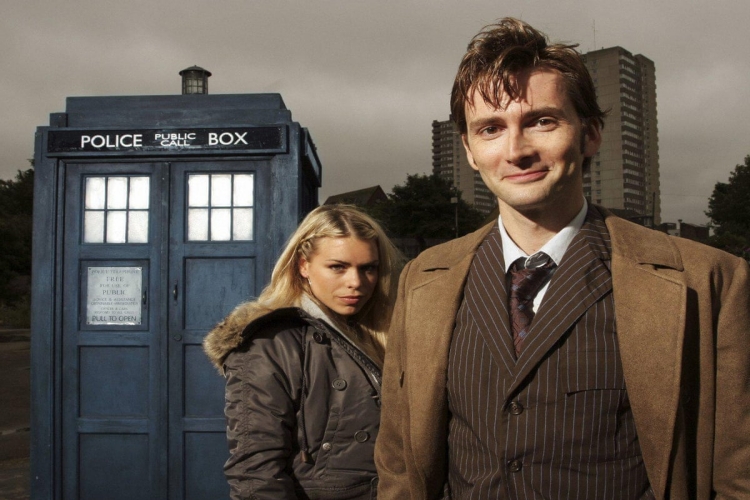
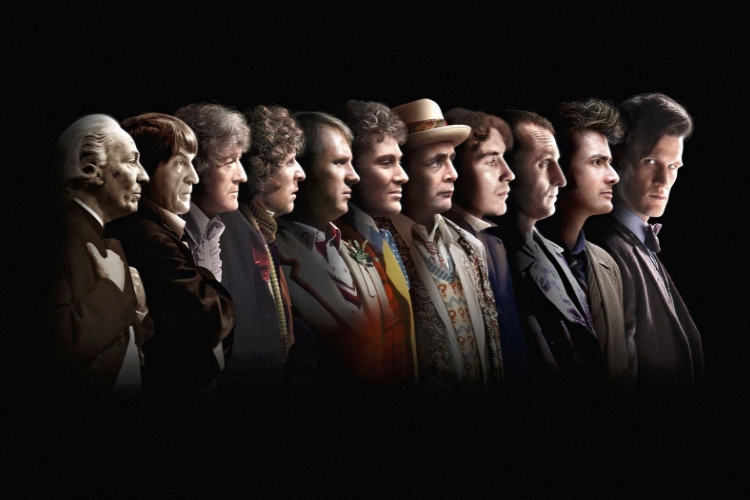
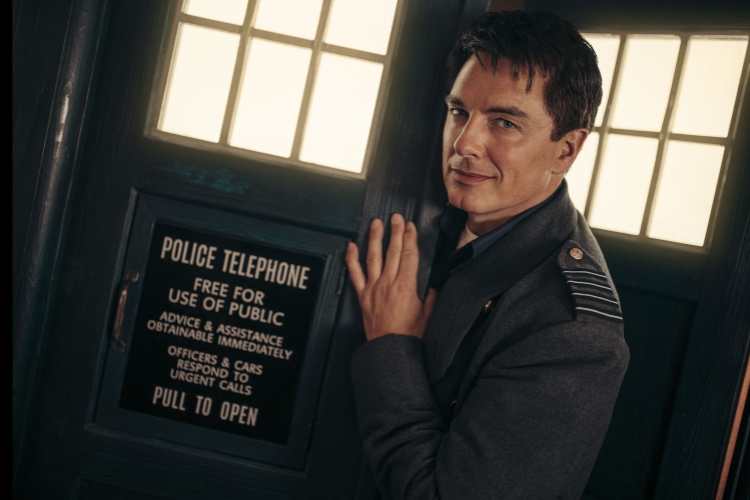
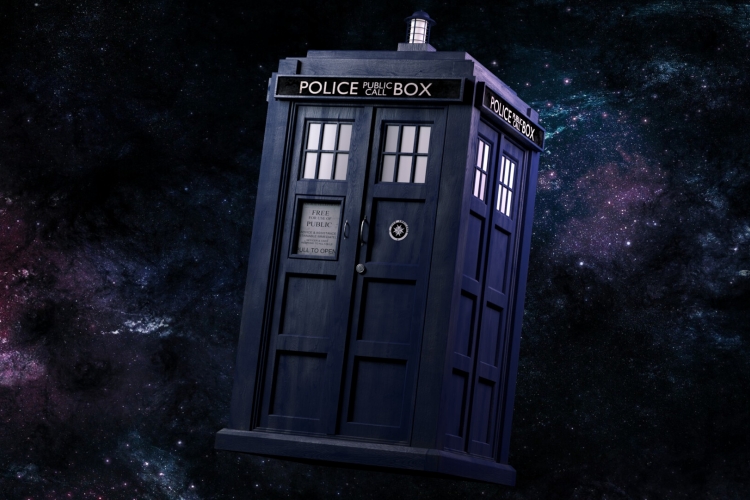
Once the popularity declined to a degree that it was no longer a sacred cash-cow, it was tossed out as yet more fodder for the ever-hungry grunting swine of identity politics—that pernicious mindset that asserts that your identity and lived experience is primarily defined by the groups to which you belong in terms of race, gender, sexuality etc.; that you are nothing more than the colour of your skin or a set of genitals, not an individual. Once that set in, the end was more or less just a formality.
So it wasn’t gender-swapping the titular character that was the problem, that was just the most recent of a long series of terrible decisions due to a general misunderstanding of what made the show work. This led to an increasing lack of respect for everything that had gone before, and at times, open hostility exhibited towards a substantial proportion of the show’s remarkably diverse fans.
For Doctor Who to appeal to its audience, it works best if rather than experience the story, the Doctor is the story. The ‘assistant’ characters experience the adventures and interact with the Doctor on our behalf, while he is simply the actions driving the plot. The companions are what matter.
He’s best seen as a wise and powerful man, running away from his responsibilities. There used to be entire seasons about him saving the galaxy while trying to find a good spot for fishing. Now he has to strive to be a living god all the time, while crying about having to be a living god. This isn’t what he is.
And finally, make the Doctor not just what he really is but Who he is. We’re all bored with the silly games and childish propaganda.
Of course, that ship has already sailed, but there are still lessons to be learned. It’s never too late for that.
Need to hear more about the opinions of two borderline alcoholics whose mental health issues crossed the border? Click the pic to fall even further down the rabbit-hole.
Many thanks for reading this article. We hope it was interesting, informative and entertaining. Follow us on social media or share our content on your own pages. It helps us grow so we can create more free content to help you.
Want a completely free sci-fi comedy?
Rob is a ginger waiter who successfully fails at dating. Dave delivers towels. Join them on an adventure that might change the entire galaxy – but won’t – as they drink free beer and travel out to the edge of the known galaxy for reasons that barely seem worth mentioning.
